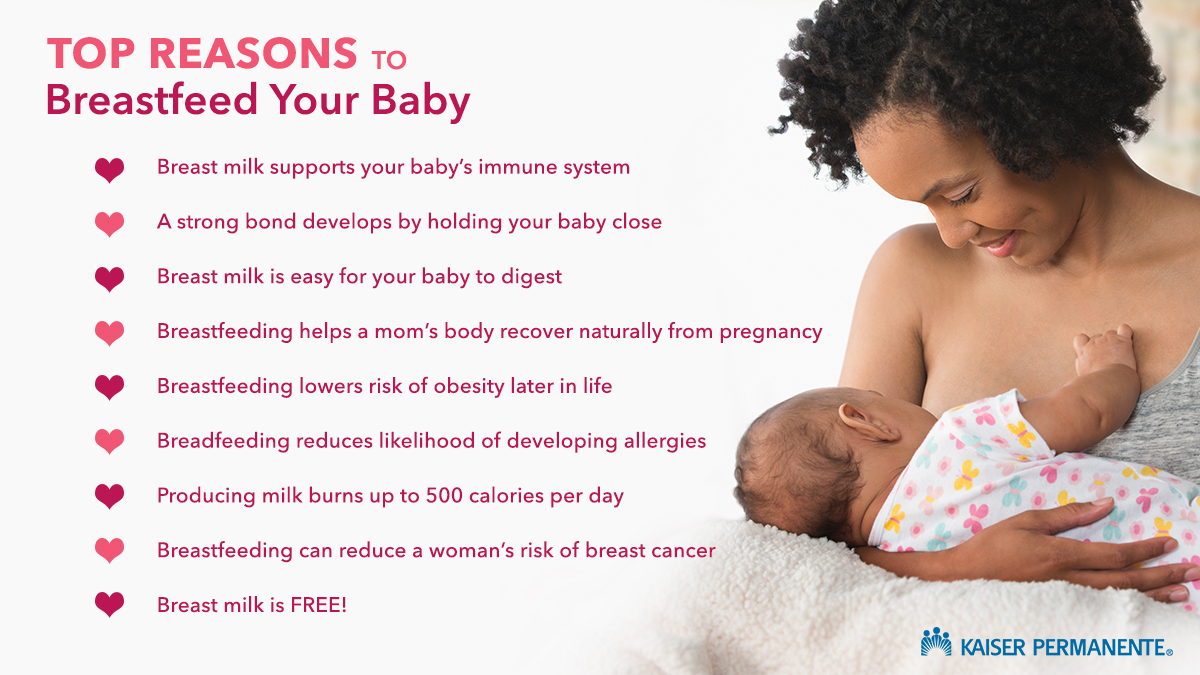 Source: bing.com
Source: bing.comBreastfeeding is a natural process and one of the most important things that a mother can do for her baby in the first few months of their life. It provides a range of health benefits, especially when it comes to building immunity. In this blog post, we will look in-depth at why breastfeeding is essential for babies to develop immunity.
Table of Contents
What Is Immunity?
Immunity is the body’s ability to fight off infections and diseases. It is the first line of defense against any external threats that may enter the body. A strong immunity system helps the body to fight off viruses, bacteria, and other harmful microorganisms. It also helps to prevent the development of chronic diseases.
What Is Breast Milk?
Breast milk is the ideal food for newborn babies. It is a complete food that provides all the nutrients needed for a baby’s growth and development. Breast milk also contains antibodies, which are passed from the mother to the baby through breastfeeding. These antibodies help to protect the baby from infections and diseases.
How Does Breastfeeding Help Build Immunity?
Breast milk contains a high concentration of antibodies, which help to protect the baby from infections and diseases. These antibodies are specific to the mother’s own immune system and can help to fight off infections that the mother has already been exposed to. Breast milk also contains other immune-boosting substances, such as white blood cells, cytokines, and enzymes, which help to strengthen the baby’s immune system.
Breastfeeding also helps to create a healthy gut microbiome in the baby. The gut microbiome is the collection of microorganisms that live in the gut. A healthy gut microbiome is essential for a strong immune system. Breast milk contains prebiotics, which help to feed the good bacteria in the gut. Breastfeeding also helps to reduce the risk of developing allergies, asthma, and other immune-related disorders later in life.
When Should You Start Breastfeeding?
Breastfeeding should ideally start within the first hour of birth. This is known as skin-to-skin contact, where the baby is placed on the mother’s chest immediately after birth. Skin-to-skin contact helps to regulate the baby’s temperature, heart rate, and breathing. It also helps to promote bonding between the mother and baby.
The World Health Organization recommends exclusive breastfeeding for the first six months of a baby’s life. After six months, complementary foods can be introduced, while continuing to breastfeed up to two years or beyond.
Conclusion
Breastfeeding is a natural and essential process that provides numerous health benefits to both the mother and baby. It is the best way to ensure that the baby receives all the nutrients needed for growth and development, including an immunity boost. Breastfeeding also helps to create a strong bond between the mother and baby, which is essential for emotional development.
In conclusion, breastfeeding is vital for the baby’s overall health and well-being. It provides a range of health benefits, including building immunity, reducing the risk of infections and diseases, and promoting healthy gut microbiome. Breastfeeding is a natural and beautiful process that should be encouraged and supported.
Frequently Asked Questions
Q: Can I breastfeed if I have COVID-19?
A: Yes, you can breastfeed if you have COVID-19. The World Health Organization recommends that mothers with suspected or confirmed COVID-19 should continue to breastfeed while taking precautions to prevent transmission to the baby.
Q: Can I breastfeed if I have a cold or flu?
A: Yes, you can breastfeed if you have a cold or flu. Breastfeeding will not make the baby sick. In fact, breast milk contains antibodies that can help to protect the baby from getting sick.
Q: Can I breastfeed if I have HIV?
A: If you have HIV, you can still breastfeed your baby, but you will need to take antiretroviral drugs to reduce the risk of transmission to the baby. It is important to speak to your healthcare provider about the best options for you.
Q: Can I breastfeed if I have a low milk supply?
A: Yes, you can breastfeed even if you have a low milk supply. There are several ways to increase milk supply, such as nursing frequently, pumping, and taking herbs or medications. It is important to speak to a lactation consultant or healthcare provider for guidance.
Q: Can I breastfeed if I have inverted nipples?
A: Yes, you can breastfeed even if you have inverted nipples. There are several techniques to help with latching, such as using a breast pump, nipple shields, or hand expression. It is important to speak to a lactation consultant or healthcare provider for guidance.
